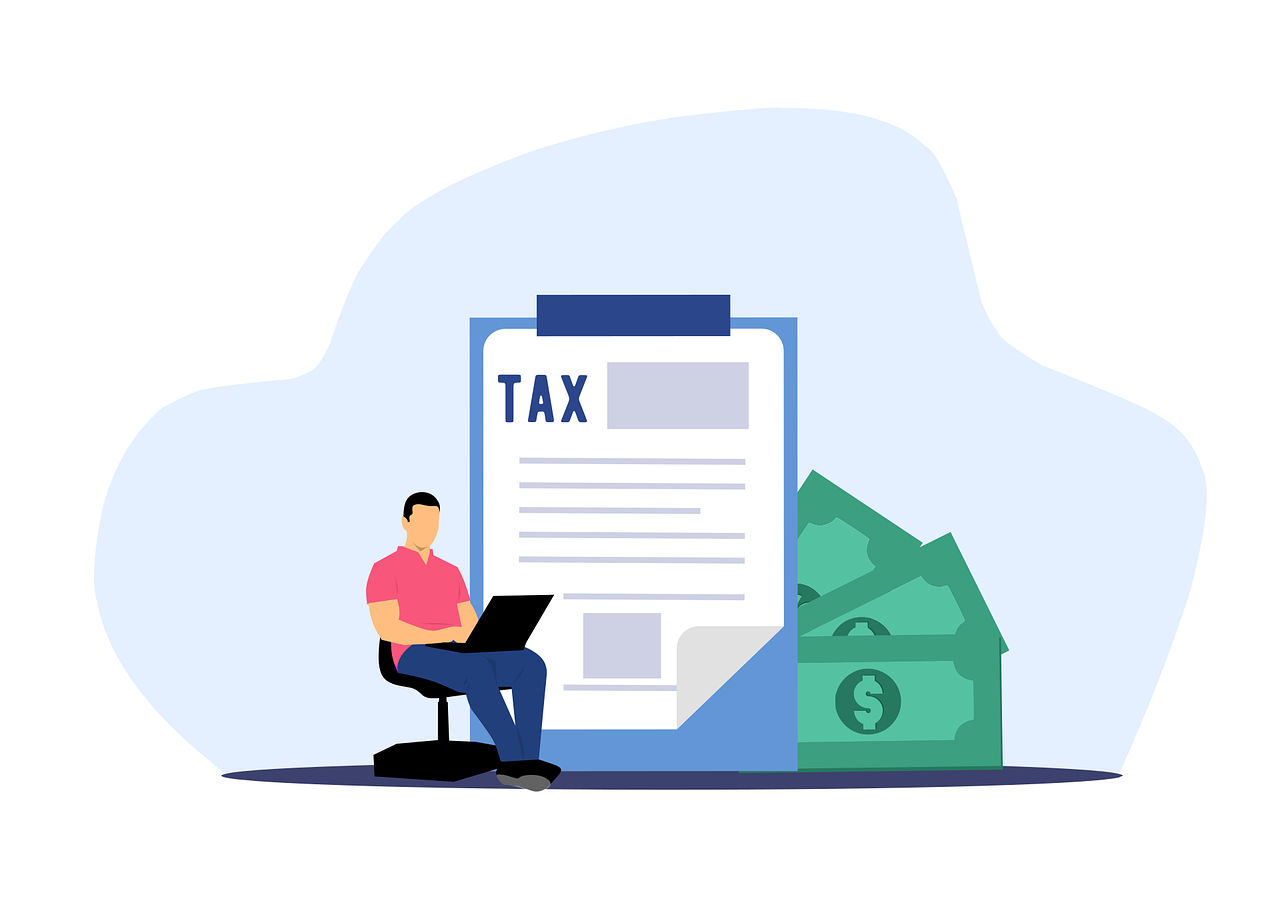Category: Financial Planning
Why Now is the Best Time for Year-End Tax Planning
By Mark Sipos, LFG Tax Director While the holiday season may seem far away, the final quarter of the year is the most important time to prepare for taxes. Once the calendar turns, your options for reducing tax liability and maximizing savings narrow significantly. Taking action now allows for flexibility and better results. One of the first steps is reviewing income, deductions, and potential tax strategies while there is still time to implement them. For some, it may make sense to defer income to the new year or accelerate expenses into the current year. Charitable contributions and pre-paying certain taxes are additional ways that have the potential to strengthen your tax position before December 31. The new “Senior Bonus," an additional $6,000 per person for those age 65 and over, can be a great opportunity to create tax savings, increase ROTH conversions, and help offset taxes on Social Security income. There are income thresholds that can impact the amount you can deduct, so careful planning is important. Investors should also consider tax-loss harvesting, a strategy that offsets gains with underperforming investments. Starting this process early can help maximize tax benefits and prepare portfolios for the year ahead. Retirement contributions are another key area. Individuals still have time to maximize 401(k), 403(b), 457, Health Savings Accounts, and Flexible Spending Plans. Business owners can take advantage of SEPs, SIMPLEs, or even cas
The investment implications of the government shutdown
Our team employs external financial research from many different economists, analysts and research firms. This research provides valuable input into how we actively monitor and manage your portfolio. Periodically, we share this research with you in addition to our own analysis and market commentary. Linked below is a piece by J.P. Morgan that examines the investment implications of the government shutdown. The federal shutdown, which started Oct. 1, poses three broad problems for the economy, namely, the drag from the shutdown itself, the confusion it is causing on the state of the economy and the fact that it has occurred when the economy was likely already entering a soft patch. Enjoy the analysis from J.P. Morgan, and thanks for your confidence in our team at Lineweaver! Please click here to
Harness the Superpower of Compounding While Reducing “Tax Drag”
By Chad Roope, CFA ®, Chief Investment Officer Compounding is the superpower of investing. Following the Rule of 70, an investment averaging 10% per year will double in just seven years. That’s the kind of growth that builds real wealth over time. But there’s a catch. Anything that slows compounding, even slightly, can have a dramatic impact on your long-term results. One of the biggest threats to that is unnecessary taxes. In the chart below, a JP Morgan analysis shows that a modest 1% annual “tax drag” on a $1 million investment in the U.S. stock market from 2014 to 2024 would have reduced its value by $326,000. At 2%, the loss jumps to $625,000. That’s money that could have been working for you. We all must pay our fair share of taxes. However, we should be very mindful about not paying extra. At Lineweaver, we employ proven, proactive strategies to help reduce unnecessary taxes so you can keep more of your gains compounding year after year. Systematic Tax Loss Harvesting Throughout the course of the year, some investments rise while others fall. That’s diversification for you. But we can help with taxes and get the benefits of diversification at the same time. For example, if a particular company hits a rough patch and we have a loss in the stock in a taxable account, we can sell the stock and harvest the loss to help with taxes. We can then reinvest the proceeds in a different company that we either like better or
Are You Ready for the Great Wealth Transfer?
Over the next two decades, Baby Boomers are expected to pass down more than $84 trillion1, making it the largest wealth transfer in U.S. history. For many families, this inheritance represents a life-changing opportunity, but it also comes with important financial challenges. Navigating an Inheritance: What to Do First Before making any decisions, take time to process your loss. Once you’re ready, gather all key legal and financial documents such as wills, trusts, account statements, and property titles. Not all assets are taxed or distributed the same, so understanding what you’ve inherited is essential. For example, an inherited IRA from a non-spouse falls under the SECURE Act and must be emptied within 10 years of the original owner’s death. If a trust is named a beneficiary, the tax bill can hit faster, so it’s important to establish that quickly. A taxable brokerage account is simpler because you get a step 11up in basis to the date 11of 11death value, meaning little or no capital 11gains tax if you sell soon. Non 11qualified annuities are trickier. Earnings come out first and are taxed as ordinary income, and most contracts force you to cash out within five years or start lifetime payouts. Common Inheritance Mistakes to Avoid Without careful estate planning, it’s easy to make costly mistakes. One example is naming a trust as a contingent IRA beneficiary without understanding the tax implications. Another is leaving an IRA to one pers
What the Social Security Fairness Act mean for Your Benefits in 2025
By Mark Sipos, LFG Tax Director If you’ve worked in a public service job, chances are you’ve heard of the Windfall Elimination Provision (WEP) or Government Pension Offset (GPO). WEP reduced Social Security benefits for individuals with pensions from jobs that didn’t pay into Social Security, and GPO reduced Social Security spousal and survivor benefits for individuals who also received a pension from a job that wasn’t covered by Social Security. But at the beginning of the year, as one of their last acts in office, the Biden Administration passed the Social Security Fairness Act (SSFA), meaning many retirees may see higher monthly payments and possibly retroactive benefits. Let’s break down what SSFA entails, how the repeals affect you, and what you need to know about the taxation of your Social Security benefits moving forward. What Changed in 2025? On January 5, 2025, the Social Security Fairness Act officially repealed WEP and GPO. This change applies to Social Security benefits payable for any months after December 2023. That means if you were previously impacted by WEP, your benefit could increase, possibly significantly. The repeal also opens the door for retroactive payments dating back to January 1, 2024. In total, more than 3.2 million Americans are expected to benefit from the elimination of WEP and GPO, according to the Social Security Administration. How WEP, GPO Repeal Impacts Public Employees and Retirees The repeal
Municipal Bond Market Spotlight
By Chad Roope, CFA ®, Chief Investment Officer U.S. municipal bonds (munis) are prized for their tax advantages, but their historic tendency to provide a stable source of return also makes them valuable amid market volatility and uncertainty. Munis are generally less vulnerable to inflation shocks or the crossfire of global trade policies because they are often linked to public authorities that provide fee-based essential services, such as waste collection and public transportation, or secured by taxes on sales, property, and income. Munis have also shown historically low default rates and high credit ratings (Aa3 versus Ba1 for global corporate debt, on average) thanks to the disciplined finances and stable revenues of most state and local governments. Tax equivalent yields of munis have reset to levels not seen in over a decade, with some investment grade yields north of 6%. Against this backdrop, we see an opportunity to increase allocations, particularly as the outlook for limited supply relative to demand in July and August could bolster performance. Additionally, munis offer a possible antidote to tariffs and recession concerns. Amid Wall Street’s growing concern over a potential tariff-induced recession, investors are seeking refuge in areas least affected by global supply chains. This is fueling interest in state and local government bonds for the following reasons: Limited exposure to trade risks: A broad-based economic slowdown would reduce state r
Actively Managed Portfolios at Lineweaver
By Chad Roope, CFA®, Chief Investment Officer We recognize that the market is currently experiencing turbulence and volatility not seen in several years. Given the strong returns we experienced in 2023 and 2024, the instability of the last week feels particularly unsettling for most of us. Given this volatility, we’ve made recent trades and rebalanced our clients’ portfolios. Despite the current uncertainty, we anticipate that 2025 will be a reasonably good year for stocks. Our belief is that we will finish the year with returns in the mid- to upper-single digits. Over the course of the year, however, we expect the markets to be much more volatile than what we have experienced over the past few years. Our belief that the economy is still fundamentally strong has three supporting points. The first is earnings, which are growing at a strong rate. In addition to good earnings, we're beginning to see the market broaden beyond just a few top tech stocks. Many other stocks are also trending higher as we enter 2025. Finally, while there’s a great deal of uncertainty in terms of policy, tariffs, trade deals, and other changes in Washington, we also think that these changes – and the volatility that comes with them – are creating opportunity. Within our clients’ investment accounts, we've recently rebalanced our strategies. Some of the things that did so well last year were slightly above our target weights, leadi
Are you prepared for the four phases of retirement?
As you near retirement, you're probably thinking a lot about your finances and wondering if your savings will be enough for your retirement years. While it's important to pay attention to your 401(k), IRAs, and Social Security benefits, you might not have considered one of the most important aspects of retirement: the psychological phases you'll go through during retirement. Understanding the emotional and mental changes that come with retirement can make the experience easier. It can help you not only financially but also enjoy a fulfilling retirement with a sense of purpose and well-being. In an article on Yahoo Finance, Dr. Riley Moynes, the author of “The Four Phases of Retirement: What to Expect When You’re Retiring,” explains how he interviewed 150 retirees about their experience and outlined key phases that can occur. Click here to read more about his insights and explore the four phases of
Savvy Social Security Planning
Savvy Social Security Planning: What Baby Boomers Need to Know to Maximize Retirement Income What you need to know before you apply for Social Security benefits. When should someone start collecting Social Security benefits? The answer is that there is no one "best age" for everyone and, ultimately, it is your choice. You should make an informed decision about when to apply for benefits based on your individual and family circumstances. We don’t know what the future holds, but Social Security is likely to continue as a source of some retirement income for baby boomers. From a planning perspective, any assumptions made about the impact of Social Security on retirement should be conservative. An individual’s full retirement age (FRA) is the age when he or she qualifies to receive the entire or "full" Social Security retirement benefit based on his or her earnings history. This age varies based on when he or she was born Everyone who is qualified to receive Social Security retirement benefits can begin taking them as early as age 62 or delay up to age 70. Your monthly benefit amount can differ substantially based on the age when you start receiving benefits. If you decide to start benefits before your full retirement age, your benefit will be smaller but you will receive it for a longer period of time. At age 62, your monthly benefit is 25% lower than the benefit at full retirement age. (FRA) If you decide to wait until your full ret











 Virteom
Virteom